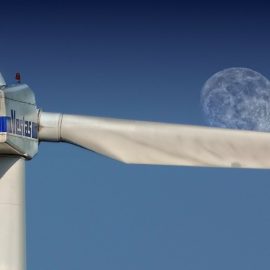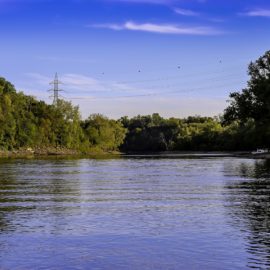
Yesterday there were two articles on the state getting more money from the Gulf oil and wind facilities. The governor had just signed the offshore wind bill which requires the wind industry to pay for their output as does the oil industry. This is standard practice for the oil industry but not the wind industry. Will it deter development?
Gov. John Bel Edwards signed an offshore wind energy bill Tuesday that has received mixed reviews from proponents of the Gulf of Mexico’s nascent wind industry. Edwards, who strongly backs offshore wind development in the Gulf, signed House Bill 165, which creates a framework that would allow offshore wind leasing for the first time in Louisiana waters. Some members of the offshore wind industry objected to a provision that lets the state take a cut of wind farm revenues while also charging for leases.
nola.com
In one sense, it seems you are paying twice, once for the lease and then for the output. But this is standard in oil. Can an “oil” state work with other, different, energy sources?
Rep. Jerome “Zee” Zeringue, a Republican from Houma and the bill’s sponsor, patterned the provision after ones that require the oil and gas industry to pay for lease areas and share revenues with the government. But paying royalties is almost unheard of for the offshore wind industry, according to the Southeastern Wind Coalition. Because offshore wind is still in the development phase in the U.S., with construction costs high and profits relatively low, companies aren’t required to pay royalties for wind farms in federal waters, where much of the industry’s growth is focused. Unlike oil, which is a finite resource that can be stored and shipped to markets across the world, electricity from offshore wind is a limitless resource but it must be used immediately, typically by nearby power utilities.
Louisiana is already down the list for building wind farms as our wind is not that strong.
Louisiana’s state waters, which extend about three miles from the coast, have slower wind speeds than the deeper parts of the Gulf managed by the federal government, which isn’t proposing to take a share of offshore wind energy earnings. A few companies looking to build small-scale wind farms or pilot projects that test new technologies have expressed interest in Louisiana’s state waters. Charging royalties could steer some companies to other states like Texas, which has stronger winds than Louisiana, the coalition warned. Zeringue has called such concerns “ridiculous.” He believes the state’s large and skilled offshore oil and gas workforce will be a big draw for wind developers. Several Louisiana oil and gas service companies are already switching all or part of the focus to offshore wind. The new law sets the maximum size for wind leases at 25,000 acres. That’s a good fit for the wind industry, which typically needs about 1,000 acres per turbine, according to the coalition. The law also requires wind farm proposals to have plans for decommissioning turbines once they’re no longer used.
This last requirement is interesting as if they do require that for oil rigs do the companies comply?
The state Department of Natural Resources must set the state’s offshore wind rules, including criteria for lease and royalty amounts, by Jan. 1. Some state leaders and the state Coastal Protection and Restoration Authority also want Louisiana to receive a share of revenues from wind energy generated in federal waters. The CPRA pays for its massive restoration projects mostly with money from the BP oil disaster settlement and revenue from the oil and gas industry. With both sources shrinking, the CPRA is looking to offshore wind to help cover its project costs. Edwards has highlighted the need to rapidly develop offshore wind in the Gulf to reduce the state’s greenhouse gas emissions and meet his goal of “net zero” carbon emissions by 2050. His Climate Initiatives Task Force is crafting a plan that proposes enacting an offshore wind energy goal of 5,000 megawatts by 2035.
I just hope the state does not see wind energy s a cash cow and demand so much the companies say thanks but no thanks.



